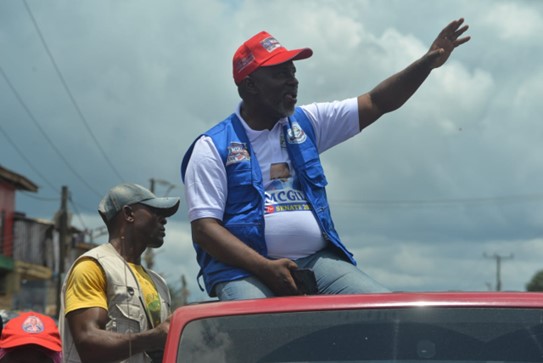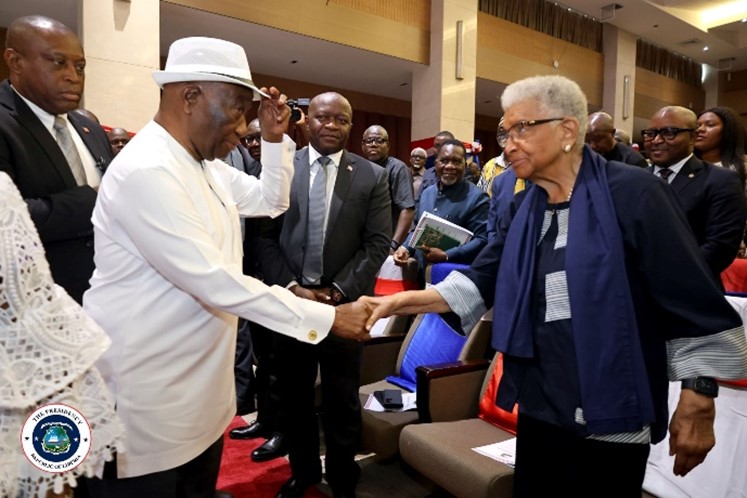The Minister of State for Presidential Affairs, Nathaniel Falo McGill, has denied justifying corruption in government, as was recently reported by the media, noting that his statement was taken out of context by detractors of the CDC government.
Speaking to a group of women in Bong County over the weekend, Minister McGill is recorded as saying, “Whole day they say we are stealing money. But even if I’m stealing money and giving it to the Liberian people, that’s a good thing I’m doing, because at least I didn’t steal money and take it to Europe.
“Some people in this country here… all the people in Ellen Johnson’s government, they can’t say they didn’t make money. But when we take our owner small money and take it to our people to go build house then they vex. When I come Bong County here and build a house here they vex. So when I take the money and carry it to Ghana, it correct? But when it is in Bong County, that me it for? I will carry it? Ehn I will leave it here? The day God take me I will carry it? Ehn when our grand children them come here they will say, ‘Oh, Bong County get good and fine houses?’ These are the things we want to do. I just want to thank you for doing what you are doing. What this young man is doing, he is doing his part. One day he will not be representative…”
Minister McGill lamented that, instead of listening, understanding and interpreting the context in which he spoke, the same detractors of the Weah government, in their usual manner, started running with the story that he was justifying corruption when he spoke to the women in Gbarnga, whom he said were appreciative for what the government is doing for the people.
The Minister of State emphasized that he detests corruption, has never supported it and will never ever support it, and categorically underscored that he was taken out of context.
Reacting further to the media report, which quoted a live video of his remarks when he addressed the group of women in Bong County, he said it is totally untrue that he intentionally endorsed corruption in government when he made the remarks. According to him, his statement was meant to convey a message that the CDC was willing at any time to stand with the people by identifying with the communities, and not the other way around.
Research conducted by the Hot Pepper has revealed that there is a complete difference between “even though” and “even if”. According to the BBC Learning English Program, presented by Phil Jones and others, “even though” and “even if” are used for emphasis but do not mean the same. According to Jones, “even though” is used to introduce something truthful, but something unexpected (similar to despite). For example, “Even though I hate driving, I am still going to Scotland by car.”
However, “even if” is used to introduce something hypothetical, but might not be real. For example, “Even if he paid me, I wouldn’t watch that film.”
This clarifies Minister McGill’s hypothetical statement, in which he said, “But even if I’m stealing money and giving it to the Liberian people, that’s a good thing I’m doing, because at least I didn’t steal money and take it to Europe.”







